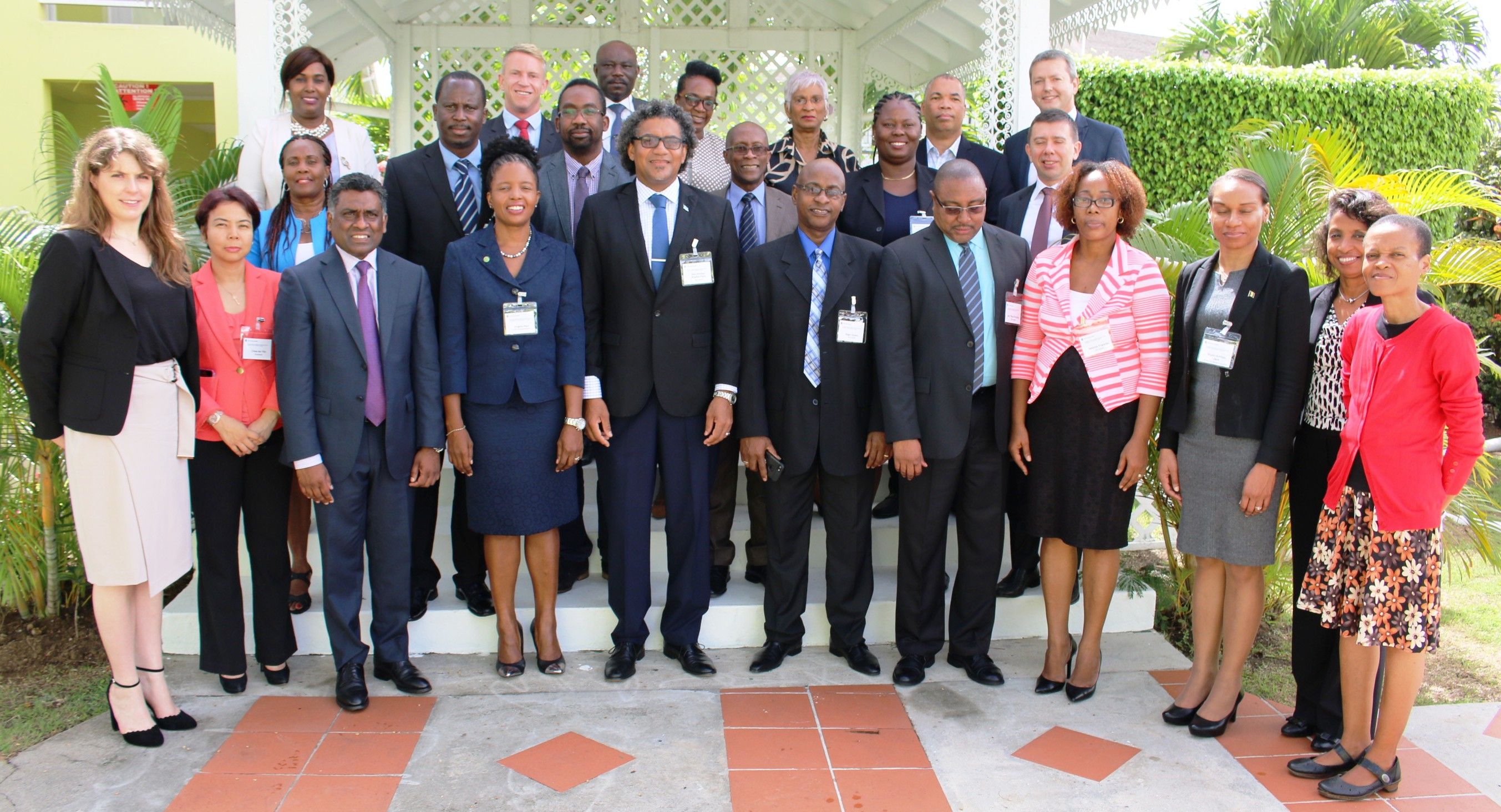Trade Policy Experts offer solutions to the issues affecting Trade in the Caribbean
OECS Media Release
Strategies to deal with the effects of global issues affecting trade in the Caribbean were advanced at a recent meeting of international and regional stakeholders which sought to outline trade policy challenges impacting OECS and CARICOM countries and discuss the way forward.
The two-day meeting, organised by the Commonwealth Secretariat, the Caribbean Community (CARICOM) Secretariat and the Organisation of Eastern Caribbean States (OECS), was held on 26-27 June, 2017 in St. Lucia and convened Senior Trade Officials from OECS and CARICOM Member States; Commonwealth and CARICOM Secretariats; Ambassadors of Member States in Geneva; Regional Advisers of the Hubs and Spokes Programme; and international consultants.
Working sessions included presentations and discussions on six main topics:
- The Caribbean Region in the Trade Slowdown: Implications for Growth and Development;
- Connectivity and Global Value Chains: Implications for the Caribbean;
- Strengthening Trade Multilateralism: Preparations for WTO MC11 and Beyond;
- Emerging Issues in World Trade: Implications for the Caribbean;
- Regional Trade Developments in the Caribbean; and
- The Implications of Brexit for Caribbean Trade and Integration.
Head of the Trade Policy Unit at the OECS Commission, Ms. Virginia Paul, welcomed the opportunity to have in-depth dialogue with international and regional trade policy experts.
“The consultation provided an opportunity to discuss many pertinent issues impacting the creation of trade policy in the region and internationally.”
“Stakeholders were able to discuss the international trading environment; the developments in terms of trade performance and trade relations among major trading partners,” Ms. Paul said.
Hon. Bradley Felix, Minister for Commerce, Industry and Investment in St. Lucia, highlighted the importance of unity and a global vision within the trade grouping as crucial to its survival.
“Conversations like these, that we continue to have with our trading partners and Geneva, are primarily to see how we can get over hurdles but also to create stronger unity within our own OECS and CARICOM entities.”
“This is extremely important moving forward given the challenges in trade,” Minister Felix said.
Trade is an integral part of the OECS Growth and Development Strategy and is an important driver in developing the economies of the Eastern Caribbean. As a group, the OECS has pursued the negotiation of trade arrangements that cater to their smallness and vulnerability by safeguarding sensitive domestic sectors and providing more access to markets of export interest.




